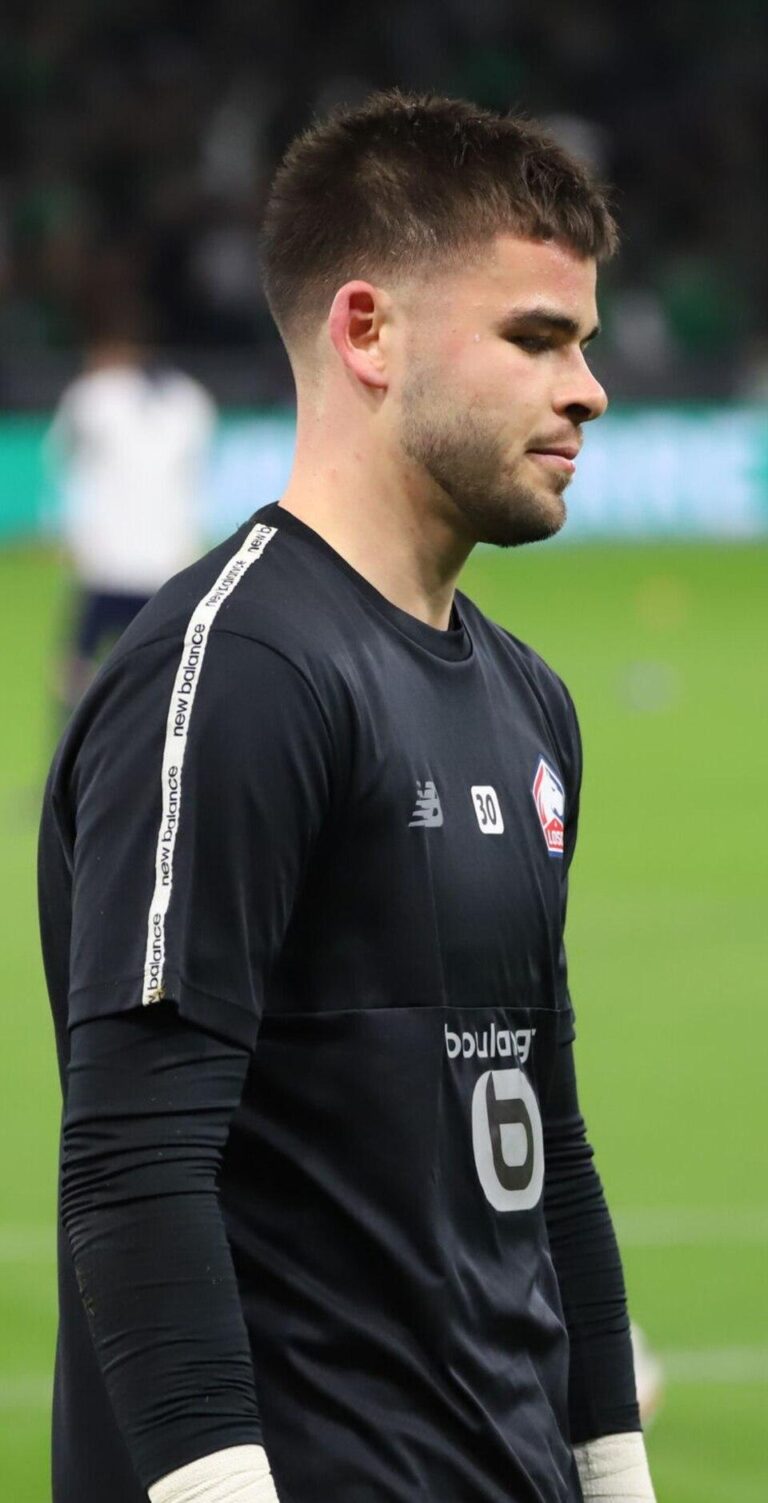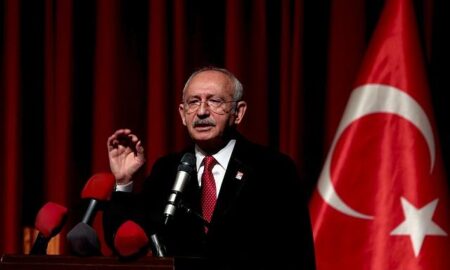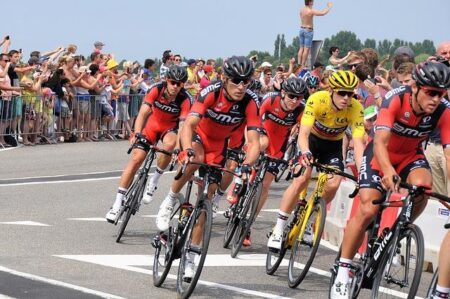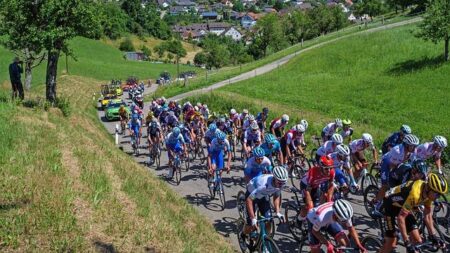Lucas Chevalier Eyes Move Away from Lille to Secure No. 1 Spot for France
In a candid revelation that has captured the attention of football fans and analysts alike, promising goalkeeper Lucas Chevalier has expressed his desire to leave Lille in pursuit of a starting position with the French national team. The 23-year-old, who has made a name for himself in Ligue 1, believes that securing a regular spot in a top-tier club is essential for his development and ambition to represent France on the international stage. As discussions surrounding his future intensify, Chevalier’s comments shed light on the pressures faced by young talents aspiring to rise through the ranks of professional football, while also prompting questions about Lille’s current standing and its impact on player aspirations. With transfer speculation swirling, this situation could have significant implications for both the player and the club as they navigate the challenges ahead.
Lucas Chevalier’s Career Crossroads and Aspirations for the National Team
Lucas Chevalier finds himself at a pivotal moment in his career, boldly suggesting that a departure from Lille may be essential for his ambition to secure the coveted position of France’s number one goalkeeper. With a promising trajectory already in motion, Chevalier understands that competition is fierce, particularly with established names dominating the national setup. He recognizes the importance of regular playing time, stating that without it, his dream of donning the blue jersey may remain just that—a dream.
Chevalier has outlined a few key factors he believes are critical for his development:
- Consistent Playing Time: Regular appearances are paramount for growth and confidence.
- Exposure to High-Pressure Matches: Competing in critical fixtures will enhance his performance under pressure.
- Strong Support System: Surrounding himself with experienced players can provide invaluable mentorship.
The young goalkeeper is eyeing clubs that can offer these vital elements, with the hope that a new environment will ignite his potential, ultimately leading him to represent his country on the grandest stages of international football.
The Impact of Club Environment on Goalkeeping Development
Lucas Chevalier’s assertion regarding his need to seek opportunities beyond Lille highlights the pivotal role that a club’s environment plays in shaping a goalkeeper’s career trajectory. The training facilities, coaching staff, and competitive atmosphere can either nurture or hinder a player’s progression. A supportive club environment, characterized by experienced coaches and a strong tactical framework, enables goalkeepers to hone their skills effectively. When a player like Chevalier feels stagnant within a setup, it raises questions about the club’s ability to foster talent at critical development stages.
Moreover, the pressure of performing consistently in high-stakes matches can significantly impact a goalkeeper’s confidence and growth. In Chevalier’s case, the desire to elevate himself to a national team contender underscores the need for regular first-team action, which is often predicated on the club’s strategic vision. Clubs that prioritize youth development and provide a pathway to senior football often see their goalkeepers thrive. Factors that contribute to an ideal environment include:
- Quality Coaching: Access to seasoned mentors who offer personalized feedback.
- Game Time: Opportunities to play in top-flight fixtures to gain real-world experience.
- Supportive Infrastructure: State-of-the-art training facilities that cater specifically to a goalkeeper’s needs.
Strategic Moves for Chevalier: Finding the Right Fit in a New Club
Lucas Chevalier is at a pivotal crossroads in his career, emphasizing his need to seek opportunities beyond Lille if he wishes to ascend to the top ranks of French football. The talented goalkeeper has articulated his desire for more playing time and exposure, recognizing that to cement his status as a leading figure in the national squad, he must be in a competitive environment that provides him with the necessary challenges and visibility. Potential suitors should take note of his ambition, as Chevalier’s skillset and mentality align well with clubs looking to bolster their defensive lineup.
When evaluating potential destinations, several key factors will likely influence Chevalier’s decision-making. Clubs in major European leagues, particularly in the Premier League and Serie A, can provide not only substantial competition but also a platform to showcase his abilities on larger stages. Below is a table highlighting some attractive options for Chevalier:
| Club | League | Current Goalkeeper | Potential Fit |
|---|---|---|---|
| Newcastle United | Premier League | Nick Pope | Growing aspirations and solid defensive unit |
| Milan | Serie A | Mike Maignan | Tradition of strong goalkeepers; European football |
| Real Betis | La Liga | Claudio Bravo | Ambitious club with attacking style and defensive needs |
Chevalier’s strategic move could also involve thorough engagement with potential clubs to understand their long-term vision and how he fits into their plans. A forward-thinking approach will be essential as he navigates this crucial phase of his career, ensuring that he finds a club that not only meets his immediate needs but also provides a pathway for growth as he aims to become France’s top goalkeeper.
Assessing Lille’s Role in National Selection: Opportunities and Challenges
Lucas Chevalier’s recent comments about needing to leave Lille to secure his place as France’s number one goalkeeper reveal a tension between club loyalty and ambition. As a rising star in Ligue 1, Chevalier acknowledges the competitive environment at Lille, a club that has nurtured his talents but may lack the exposure needed for a national team spot. He argues that opportunities elsewhere could elevate his performance and visibility, potentially making him a key contender during international matches.
However, transitioning from Lille brings its own set of challenges. The mental and physical toll of changing clubs can impact a player’s consistency and confidence. On top of that, with the French national team boasting a plethora of reputable goalkeepers, the race to be the starting choice is fierce. Key factors Chevalier might consider include:
- Club Performance: How well his new team is positioned in domestic and continental competitions.
- Coaching Style: Compatibility with the tactical philosophies of potential suitors.
- Market Competition: The quality of other goalkeepers vying for the same spot on the national team.
| Factor | Consideration |
|---|---|
| Development | Need for consistent playtime to hone skills |
| Visibility | Playing in a high-profile league boosts reputation |
| Pressure | New environments may increase expectations |
The Way Forward
In conclusion, Lucas Chevalier’s aspirations to leave Lille in search of greater opportunities highlight the competitive nature of modern football and the drive of young talent to secure pivotal roles on larger stages. As the goalkeeper sets his sights on becoming France’s No. 1, the football community will be keenly watching how this potential transition unfolds. Whether a move materializes or remains a topic of speculation, Chevalier’s determination underlines the relentless pursuit of excellence that defines athletes at the highest level. As the summer transfer window approaches, fans and analysts alike will await developments with bated breath, eager to see how this emerging star navigates the challenges ahead in his career.




